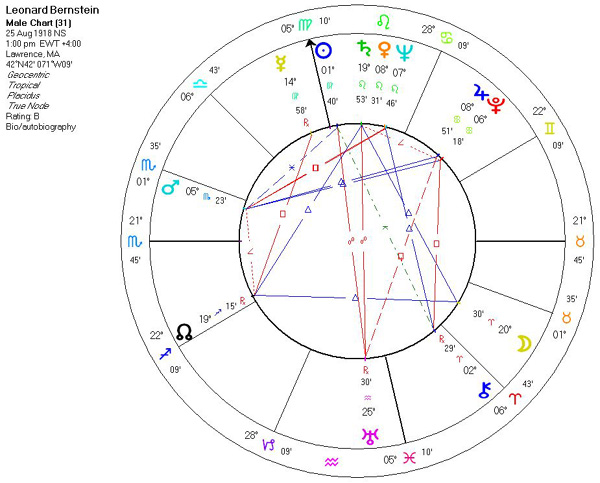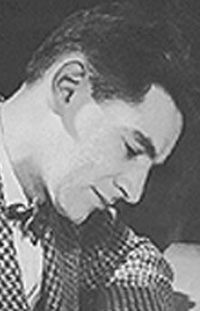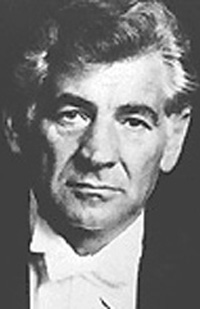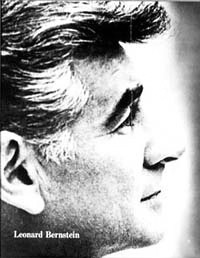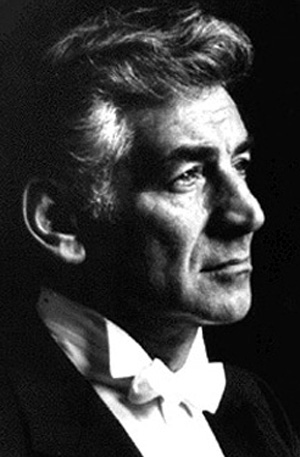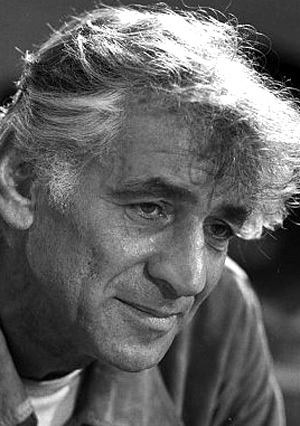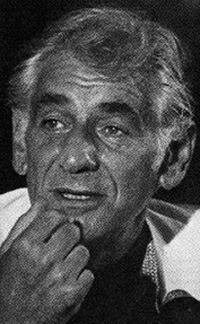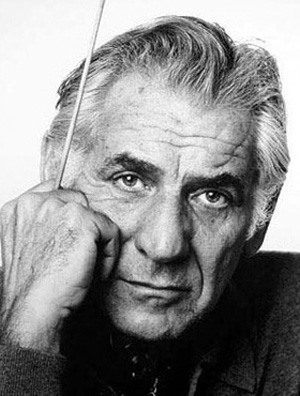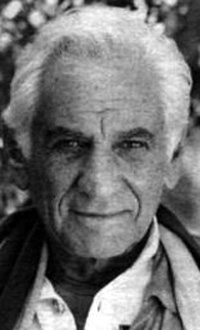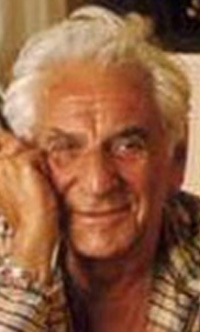Copyright Michael D. Robbins 2005
Astro-Rayological Interpretation & Charts
Quotes
Biography
Images and Physiognomic Interpretation
A liberal is a man or a woman or a child who looks forward to a better day, a more tranquil night, and a bright, infinite future.
Any great work of art... revives and readapts time and space, and the measure of its success is the extent to which it makes you an inhabitant of that world - the extent to which it invites you in and lets you breathe its strange, special air.
Music can name the unnameable and communicate the unknowable.
The key to the mystery of a great artist is that for reasons unknown, he will give away his energies and his life just to make sure that one note follows another... and leaves us with the feeling that something is right in the world.
To achieve great things, two things are needed; a plan, and not quite enough time.
Technique is communication: the two words are synonymous in conductors.
I’m not interested in having an orchestra sound like itself. I want it to sound like the composer.
[It was] an initiation into the love of learning, of learning how to learn, that was revealed to me by my BLS masters as a matter of interdisciplinary cognition—that is, learning to know something by its relation to something else.
Any great work of art … revives and readapts time and space, and the measure of its success is the extent to which it makes you an inhabitant of that world—the extent to which it invites you in and lets you breathe its strange, special air.
Music, of all the arts, stands in a special region, unlit by any star but its own, and utterly without meaning … except its own.
Music … can name the unnamable and communicate the unknowable.
Inspiration is wonderful when it happens, but the writer must develop an approach for the rest of the time... The wait is simply too long.
This will be our reply to violence: to make music more intensely, more beautifully, more devotedly than ever before.
In the olden days, everybody sang. You were expected to sing as well as talk. It was a mark of the cultured man to sing. To know music.”
Life without music is unthinkable. Music without life is academic. That is why my contact with music is a total embrace.
I believe in people. I feel, love, need and respect people above all else, including natural scenery, organized piety and nationalistic superstructures. One human figure on the slope of a mountain can make the mountain disappear for me, one person fighting for truth can disqualify for me the entire system which had dispensed it.
Which of my Jewish roots do I follow?
A work of art does not answer questions, it provokes them; and its essential meaning is in the tension between the contradictory answers.
Leonard Bernstein in 1971Leonard Bernstein (August 25, 1918 – October 14, 1990) was an American composer, pianist and conductor. He was the first conductor born in the United States of America to receive world-wide acclaim, and is known for both his conducting of the New York Philharmonic, including the acclaimed Young People's Concerts series, and his multiple compositions, including West Side Story, Candide and On The Town.
Bernstein was born in Lawrence, Massachusetts in 1918 to a Jewish family from Rovno, Ukraine. His grandmother insisted his first name be Louis, but his parents always called him Leonard, as they liked the name better. He had his name changed to Leonard officially when he was sixteen. His father, Sam Bernstein, was a businessman, and initially opposed Bernstein's interest in music. Despite this, the elder Bernstein frequently took him to orchestra concerts. One time, Bernstein heard a piano performance and was immediately captivated; he subsequently began learning the piano at a young age. As a child, Bernstein attended the Garrison and Boston Latin School. When his father heard about the piano lessons, he refused to pay for them, even though he had enough money. So Bernstein taught young kids for money, and paid for the piano lessons.
After graduation from Boston Latin School in 1935, Bernstein attended Harvard University, where he studied music with Walter Piston and was briefly associated with the Harvard Glee Club, and then the Curtis Institute of Music in Philadelphia, where he received the only grade of "A" that Fritz Reiner ever awarded in his class on conducting. During his time at Curtis, Bernstein also studied piano with Isabella Vengerova and Heinrich Gebhard.
During his younger years in New York City, Bernstein enjoyed a promiscuous sexual life, mostly with young men (citation from Burton, Leonard Bernstein). After a long internal struggle and a turbulent on-and-off engagement, he married Felicia Montealegre, a Chilean actress, in 1951, reportedly in order to increase his chances of obtaining the chief conducting position with the Boston Symphony Orchestra. Dimitri Mitropoulos, conductor of the New York Philharmonic and Bernstein's mentor, advised him that marrying would help counter the gossip about his sexual life and appease the conservative BSO board.
Leonard and Felicia had three children, Jamie, Alexander, and Nina. During most of his married life, Bernstein tried to be as discreet as possible with his extramarital liasons. But as he grew older, and as the Gay Liberation movement made great strides, Bernstein became more emboldened, eventually leaving Felicia to live with companion Tom Cothran. Some time after, Bernstein learned that his wife was diagnosed with lung cancer. His relationship with Cothran had deteriorated, so Bernstein moved back in with his wife and cared for her until she died. (citations from Burton, Leonard Bernstein).
He was highly regarded as a conductor, composer, pianist, and educator, and probably best known to the public as long-time music director of the New York Philharmonic Orchestra, for conducting concerts by many of the world's leading orchestras, and for writing the music for West Side Story. All told, he wrote three symphonies, two operas, five musicals, and numerous other pieces.
Leonard Bernstein in 1944In November 1943, having recently been appointed assistant conductor of the New York Philharmonic Orchestra, he made his conducting debut when Bruno Walter was ill; he was an immediate success and became instantly famous, since the concert was nationally broadcast. In 1947 he conducted in Tel Aviv (then in Palestine), for the first time, beginning a life-long association with Israel. After World War II Bernstein's career on the international stage begain to flourish. In 1949 he conducted the world première of the Turangalîla-Symphonie by Olivier Messiaen. In 1957, he conducted the inaugural concert of the Mann Auditorium in Tel Aviv; he subsequently made many recordings there. In 1958, Bernstein was named Music Director of the New York Philharmonic, a post he held until 1969. Beginning in the late 1950's, he became a well-known figure in the US through his series of fifty-three televised "Young People's Concerts" for CBS. He became as famous for his teaching of music as for his conducting. Some of his music lectures were released on records. Several of these albums won Grammy awards. To this day, the "Young People's Concerts" series remains the longest running group of classical music programs ever shown on commercial television. They ran from 1958 to 1972. More than thirty years later, twenty-five of them were rebroadcast on the now-defunct cable channel Trio, and released on DVD.
Beginning in 1970, Bernstein conducted the Vienna Philharmonic Orchestra, with which he re-recorded many of the pieces that he had recorded with the New York Philharmonic, including sets of the complete symphonies of Beethoven, Mahler, Brahms and Schumann. On PBS in the 1980's , he was the conductor and commentator for a special series on Beethoven's music, which featured the Vienna Philharmonic playing all nine Beethoven symphonies, several of his overtures, and the Missa Solemnis. Actor Maximilian Schell was also featured on the program, reading from Beethoven's letters.
On Christmas Day, December 25, 1989, Bernstein conducted Beethoven's Symphony No. 9 as part of a celebration of the fall of the Berlin Wall. The concert was broadcast live in more than twenty countries to an estimated audience of 100 million people. For the occasion, Bernstein reworded Friedrich Schiller's text of Ode to Joy, substituting the word "freedom" (Freiheit) for "joy" (Freude). "I'm sure that Beethoven would have given us his blessing", said Bernstein.
Bernstein was a highly-regarded conductor among many musicians, in particular the members of the Vienna Philharmonic Orchestra and the Israel Philharmonic Orchestra, of which he was a regular guest conductor. He was considered especially accomplished with the works of Gustav Mahler, Aaron Copland, Johannes Brahms, Dmitri Shostakovich and of course his own. He had a gift for rehearsing an entire Mahler symphony by acting out every phrase for the orchestra to convey the precise meaning, and of emitting a vocal manifestation of the effect required, with a subtly professional ear that missed nothing.
Leonard Bernstein died just five days after retiring. He conducted his final performance at Tanglewood, in the Berkshires in western Massachusetts, on August 19, 1990. It was the Boston Symphony playing Britten's "Four Sea Interludes" and Beethoven's Seventh Symphony. [1]
On the day of his funeral procession through the streets of Manhattan, construction workers removed their hats and waved and yelled "Goodbye Lenny."
Leonard Bernstein (1918-1990) was perhaps the most influential figure in classical music in the last half of the twentieth century. Composer, conductor, author, lecturer and often controversial media personality, the American-born Bernstein had a dramatic impact on the popular audience's acceptance and appreciation of classical music. His own work as a composer, particularly his scores for such Broadway musicals as West Side Story and On the Town, helped forge a new relationship between classical and popular music.
For much of his career, including his legendary tenure as music director of the New York Philharmonic, Bernstein recorded exclusively for Columbia/CBS Masterworks, which is now Sony Classical. This vast legacy of recordings, featuring his work as both composer and conductor, is now being remastered and collected in a comprehensive new Sony Classical series entitled Bernstein Century.
Bernstein was born in Lawrence, Massachusetts. He took piano lessons as a boy and attended the Garrison and Boston Latin schools. At Harvard University he studied with Walter Piston, Edward Burlingame-Hill and A.
Tillman Merritt, among others. Before graduating in 1939, he made an unofficial conducting debut with his own incidental music to The Birds and directed and performed in Marc Blitzstein's The Cradle Will Rock. Then, at the Curtis Institute of Music in Philadelphia, he studied piano with Isabella Vengerova, conducting with Fritz Reiner and orchestration with Randall Thompson. In 1940 he studied at the Boston Symphony Orchestra's newly created summer institute at Tanglewood with the orchestra's conductor, Serge Koussevitsky. Bernstein later became Koussevitzky's conducting assistant.
Bernstein was appointed to his first permanent conducting post in 1943, as assistant conductor of the New York Philharmonic. On November 14, 1943, he substituted on a few hours notice for the ailing Bruno Walter at a Carnegie Hall concert, which was broadcast nationally on radio, receiving critical acclaim. Soon orchestras worldwide sought him out as a guest conductor.
In 1945 he was appointed music director of the New York City Symphony Orchestra, a post he held until 1947. After Serge Koussevitzky died in 1951, Bernstein headed the orchestral and conducting departments at Tanglewood, teaching there for many years. In 1951 he married the Chilean actress and pianist Felicia Montealegre. He was also visiting music professor and head of the Creative Arts Festivals at Brandeis University in the early 1950s.
Bernstein became music director of the New York Philharmonic in 1958.
From then until 1969 he led more concerts with the orchestra than any previous conductor. He subsequently held the lifetime title of laureate conductor, making frequent guest appearances with the orchestra. More than half of Bernstein's four-hundred-plus recordings were made with the New York Philharmonic.
Bernstein traveled the world as a conductor. Immediately after World War II, in 1946, he conducted in London and at the International Music Festival in Prague. In 1947 he conducted in Tel Aviv, beginning a relationship with Israel that lasted until his death. In 1953 Bernstein was the first American to conduct opera at the Teatro alla Scala in Milan: Cherubini's Medea with Maria Callas.
Bernstein was a leading advocate of American composers, particularly Aaron Copland. The two remained close friends for life. As a young pianist Bernstein performed Copland's Piano Variations so often he considered the composition his trademark. Bernstein programmed and recorded nearly all of the Copland orchestral works, many of them twice. He devoted several televised Young People's Concerts to Copland, and gave the premiere of Copland's Connotations, commissioned for the opening of the Philharmonic Hall (now Avery Fisher Hall) at Lincoln Center in 1962.
While Bernstein's conducting repertoire encompassed the standard literature, he may be best remembered for his performances and recordings of Haydn, Beethoven, Brahms, Schumann, Sibelius and Mahler. Particularly notable were his performances of the Mahler symphonies with the New York Philharmonic in the 1960s. These now-legendary performances reintroduced Mahler's works into the concert repertoire and initiated the restoration of Mahler's reputation as a composer (SMK 64204).
Inspired by his Jewish heritage, Bernstein completed his first large-scale work, Symphony No. 1: Jeremiah (1943). The piece was first performed with the Pittsburgh Symphony Orchestra in 1944, conducted by the composer, and received the New York Music Critics' Award. Koussevitzky premiered Bernstein's Symphony No. 2: The Age of Anxiety with the Boston Symphony Orchestra and Bernstein as piano soloist. His Symphony No. 3: Kaddish, composed in 1963, was premiered by the Israel Philharmonic Orchestra.
Kaddish is dedicated "To the Beloved Memory of John F. Kennedy."
Other major compositions by Bernstein include Prelude, Fugue and Riffs for solo clarinet and jazz ensemble (1949); Serenade for violin, strings and percussion (1954); Symphonic Dances from West Side Story (1960); Chichester Psalms for chorus, boy soprano and orchestra (1965); Mass: A Theatre Piece for Singers, Players and Dancers, commissioned for the opening of the John F. Kennedy Center for the Performing Arts in Washington, D.C., and first produced there in 1971 (SM2K 63089); Songfest, a song cycle for six singers and orchestra (1977); Divertimento for Orchestra (1980); Halil for solo flute and small orchestra (1981); Touches for solo piano (1981); Missa Brevis for singers and percussion (1988); Thirteen Anniversaries for solo piano (1988); Concerto for Orchestra: Jubilee Games (1989); and Arias and Barcarolles for two singers and piano duet (1988).
Bernstein also wrote a one-act opera, Trouble in Tahiti, in 1952, and its sequel, the three-act opera, A Quiet Place, in 1983. He collaborated with choreographer Jerome Robbins on three major ballets, Fancy Free (1944) and Facsimile (1946) for the American Ballet Theatre and Dybbuk (1975) for the New York City Ballet (SMK 63090). He composed the score for the award-winning movie On the Waterfront in 1954 (SMK 63085) and incidental music for two Broadway plays, Peter Pan (1950) and The Lark (1955).
Bernstein contributed substantially to the Broadway musical stage. He collaborated with Betty Comden and Adolph Green in On the Town (1944) and Wonderful Town (1953). In collaboration with Richard Wilbur, Lillian Hellman and others, he wrote Candide (1956). Other versions of Candide were written in association with such collaborators as Hugh Wheeler and Stephen Sondheim. In 1957 he again collaborated with Jerome Robbins and Stephen Sondheim, as well as Arthur Laurents, on the landmark musical West Side Story, also made into the Academy Award-winning film (SMK 63085). In 1976 Bernstein and Alan Jay Lerner wrote 1600 Pennsylvania Avenue.
Festivals of Bernstein's music have been produced throughout the world.
In 1978 the Israel Philharmonic sponsored a festival commemorating his years of dedication to Israel. The Israel Philharmonic also bestowed on him the lifetime title of laureate conductor in 1988. In 1986 the London Symphony and the Barbican Centre produced a Bernstein Festival. The London Symphony Orchestra in 1987 named him honorary president. In 1989 the city of Bonn presented a Beethoven/Bernstein Festival.
In 1985 the National Academy of Recording Arts and Sciences honored Mr.
Bernstein with the Lifetime Achievement Grammy Award. He won eleven Emmy Awards in his career. His televised concert and lecture series started with the Omnibus program in 1954, followed by the extraordinary Young People's Concerts with the New York Philharmonic in 1958 that extended over fourteen seasons. Among his many appearances on the PBS series Great Performances was the eleven-part acclaimed Bernstein's Beethoven. In 1989, Bernstein and others commemorated the 1939 invasion of Poland in a worldwide telecast from Warsaw.
Bernstein's writings were published in The Joy of Music (1959), Leonard Berstein's Young People's Concerts (1961), The Infinite Variety of Music (1966), and Findings (1982). Each has been widely translated. He gave six lectures at Harvard University in 1972-73 as the Charles Eliot Norton Professor of Poetry. These lectures were subsequently published and televised as The Unanswered Question.
Bernstein always rejoiced in opportunities to teach young musicians. His master classes at Tanglewood were famous. He was instrumental in founding the Los Angeles Philharmonic Institute in 1982. He helped create a world-class training orchestra at the Schleswig-Holstein Music Festival.
He founded the Pacific Music Festival in Sapporo, Japan. Modeled after Tanglewood, this international festival was the first of its kind in Asia and continues to this day.
Bernstein received many honors. He was elected in 1981 to the American Academy of Arts and Letters, which gave him a gold medal. The National Fellowship Award in 1985 applauded his lifelong support of humanitarian causes. He received the MacDowell Colony's gold medal; medals from the Beethoven Society and the Mahler Gesellschaft; the Handel Medallion, New York City's highest honor for the arts; a Tony Award (1969) for distinguished achievement in the theater; and dozens of honorary degrees and awards from college and universities. He was presented ceremonial keys to the cities of Oslo, Vienna, Bersheeva and the village of Bernstein, Austria, among others. National honors came from Italy, Israel, Mexico, Denmark, Germany (the Great Merit Cross) and France (chevalier, officer and commander of the Legion d'Honneur). He received Kennedy Center honors in 1980.
World peace was a particular concern for Bernstein. Speaking at Johns Hopkins University in 1980 and at the Cathedral of St. John the Divine in New York in 1983, he described his vision of global harmony. His Journey for Peace tour to Athens and Hiroshima with the European Community Orchestra in 1985 commemorated the fortieth anniversary of the atom bomb.
In December 1989 Bernstein conducted the historic "Berlin Celebration Concerts" on both sides of the Berlin Wall, as it was being dismantled.
The concerts were unprecedented gestures of cooperation, the musicians representing the former East Germany, West Germany and the four powers that had partitioned Berlin after World War II.
Bernstein supported Amnesty International from its inception. To benefit the effort in 1987, he established the Felicia Montealegre Fund in memory of his wife, who died in 1978.
In 1990 Bernstein received the Praemium Imperiate, an international prize created in 1988 by the Japan Arts Association and awarded for lifetime achievement in the arts. Bernstein used the $100,000 prize to launch the Bernstein Education Through the Arts (BETA) Fund, Inc.
Bernstein was the father of three children -- Jamie, Alexander and Nina -- and the grandfather of two, Francisca and Evan.
